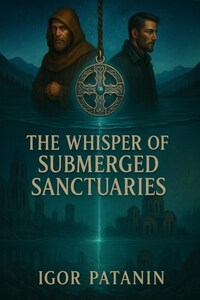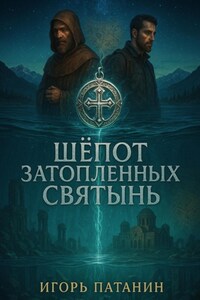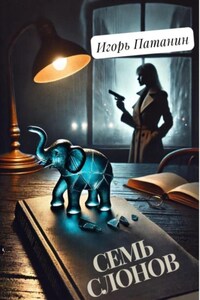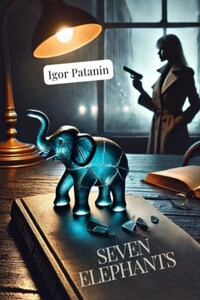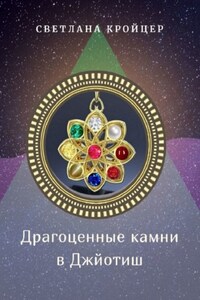Prologue: The Concealment of Treasures (1218)
The night was clear and cold. The stars of the Chuy Valley shone with particular brilliance, like thousands of celestial witnesses observing the events unfolding below. On any other evening, Brother Thomas would have savored this spectacle, but tonight, the beauty of the heavens was the last thing on his mind.
The Nestorian monastery in Suyab, once a thriving bastion of Christianity on the Great Silk Road, had descended into feverish commotion. The alarm bell had rung after sunset when a messenger arrived from the east. Mongols. Genghis Khan's innumerable army, led by Commander Jebe Noyon, was just five days' march from the city. With them rode Chagatai himself, the great khan's second son.
Thomas ran a hand through his short, graying hair. At forty-five, he was perhaps the most unusual member of the community. A European, born in distant Normandy, who had journeyed from crusader to Nestorian monk. He had spent the last fifteen years here, in the heart of Asia, studying local languages and customs, transcribing ancient texts, and healing the sick. Suyab had become the home he had never truly had before.
And now this home was about to be reduced to ashes.
"Brother Thomas!" called young novice David, descending the stone steps to the underground repository. "Father Nathaniel asks if everything is ready?"
Thomas turned. David, an eighteen-year-old with lively brown eyes and olive skin, was his pupil and assistant. Half Syrian, half local Sogdian, he possessed a rare gift for languages and a sharp mind. Thomas nodded toward the heavy chests, already packed and sealed.
"Tell him the sacred texts and relics are ready for transport. We need another two hours to gather the medical treatises and instruments."
"And what about the treasury?" David lowered his voice to a whisper.
Thomas frowned. The question of the monastery's treasury had sparked fierce debates among the brothers. Through centuries of trade on the Silk Road, the community had amassed considerable wealth: gold and silver artifacts, precious stones, rare fabrics, and spices. But there was also something else—valuables entrusted to the Nestorians by keepers of other traditions, including wandering brothers from distant Jerusalem, those known as Templars.
"Father Nathaniel still has his doubts," Thomas answered quietly. "He says the true treasures of the church are in our hearts and minds, not in gold and silver."
"But the Mongols will leave no stone standing!" David protested passionately. "We cannot allow these valuables to perish or fall into pagan hands."
Thomas gently placed a hand on the young man's shoulder.
"I agree with you. That's why I'm preparing the treasury as well," he nodded toward the far corner of the cellar, where a small, unremarkable wooden box stood in the shadows. "Especially what's in there."
David followed his gaze.
"The crystal," he whispered.
Thomas gave a short nod. Among all the monastery's treasures was one item whose value exceeded everything else. Not because of gold or precious stones, but because of its origins and supposed properties. A crystal found in the Judean hills during the time of King Solomon and crafted by ancient masters. It was said to cure incurable diseases and reveal a person's true nature, amplifying both the light and dark sides of the soul. A relic that had made a long journey through Persia, India, and finally into the hands of the Nestorians, who recognized its dual nature.
"Get ready, David," said Thomas, turning away from the box. "We leave before dawn. We have a long journey through the mountains to Issyk-Kul."
The cold mountain wind cut through to the bone, forcing them to wrap themselves in heavy cloaks. A caravan of two hundred camels moved slowly along the northern shore of Lake Issyk-Kul. Three days of travel lay behind them, and fatigue was beginning to take its toll. The Nestorians who had fled Suyab traveled with a group of merchants and ordinary townspeople who had decided to escape the Mongols. Their destination was the Chinese city of Kashgar, where they hoped to find refuge.
Thomas rode in the middle of the caravan, glancing back from time to time. An uneasy feeling had haunted him since the previous night when he had dreamed of Mongol horsemen pursuing their group. That morning, one of the scouts reported seeing a distant cloud of dust.
Father Nathaniel, a gray-bearded elder with an ascetic face, drew level with him on his mule.
"Brother Thomas, you look troubled."
"We must change our route, Father," Thomas said without preamble. "I'm almost certain the Mongols have learned of our departure and are pursuing us."
"But there is no other path to Kashgar," the abbot frowned. "Mountains to the north, the lake to the south."
"That's precisely why we need to split up." Thomas lowered his voice. "And the treasures must be divided too, so that not all will fall to our pursuers if they catch up with us."
Nathaniel was silent for a long time, gazing at the gleaming surface of Lake Issyk-Kul in the sunlight.
